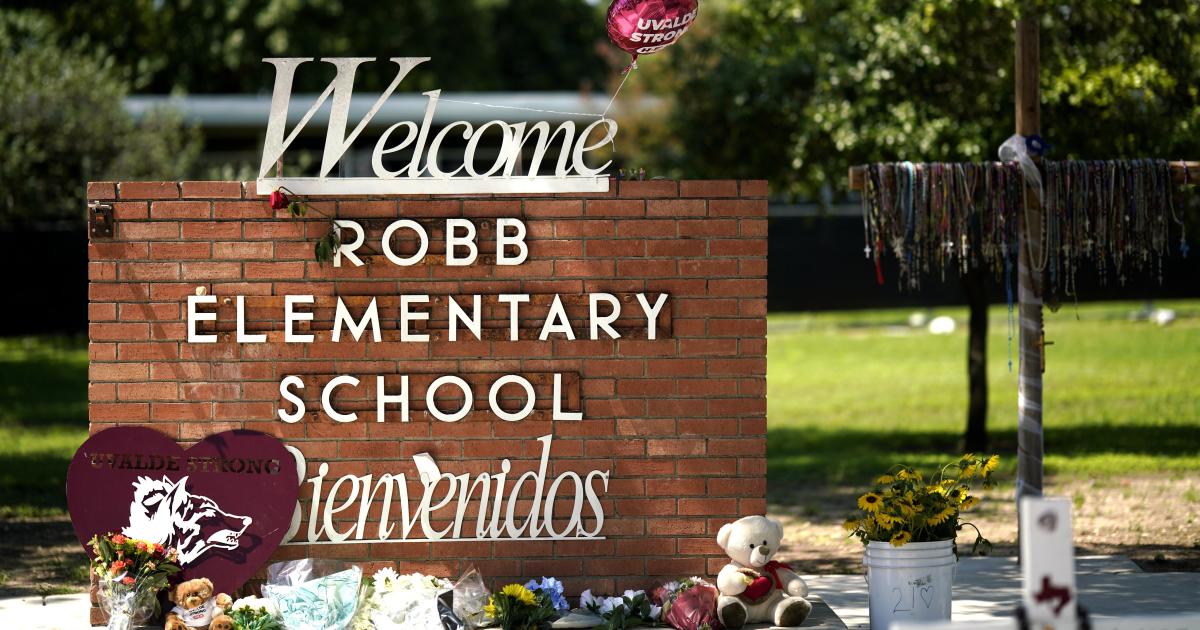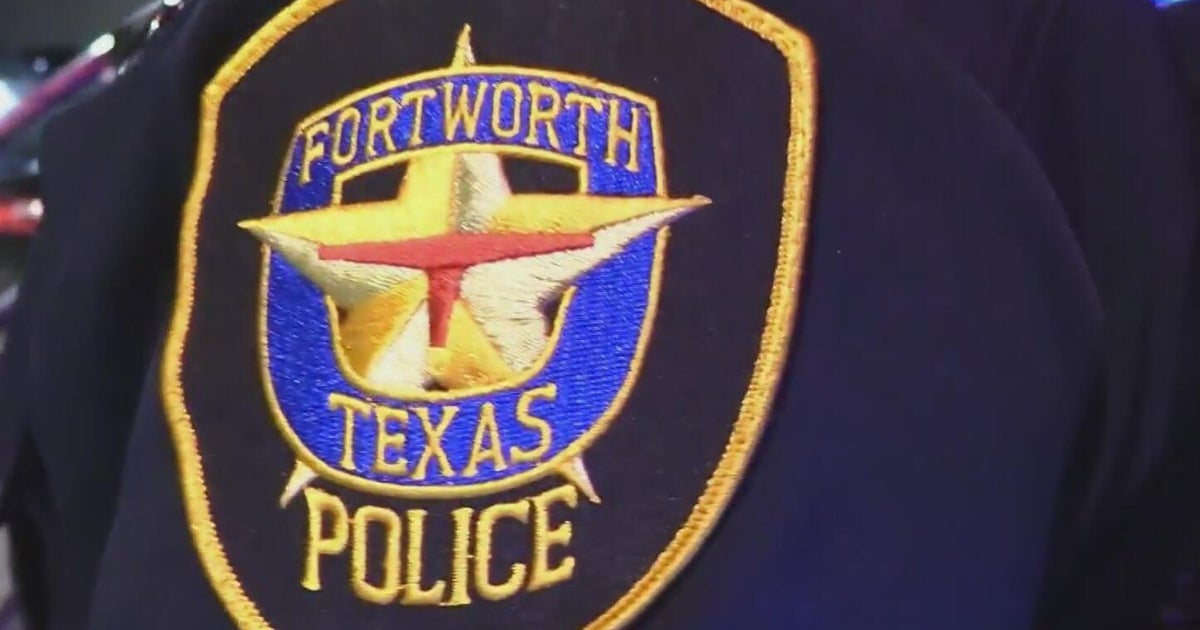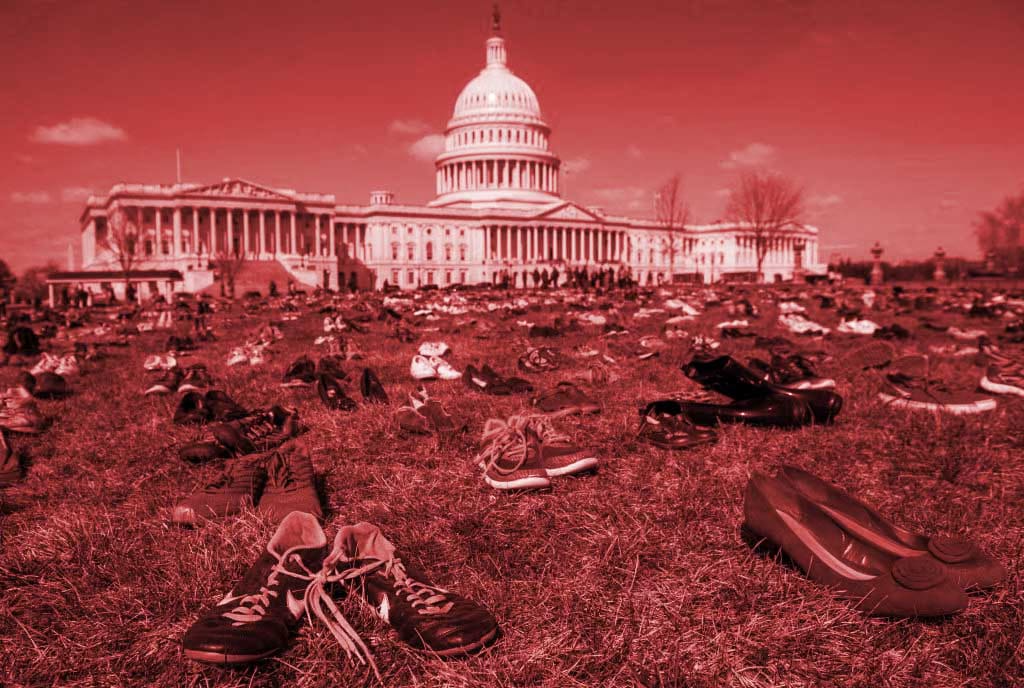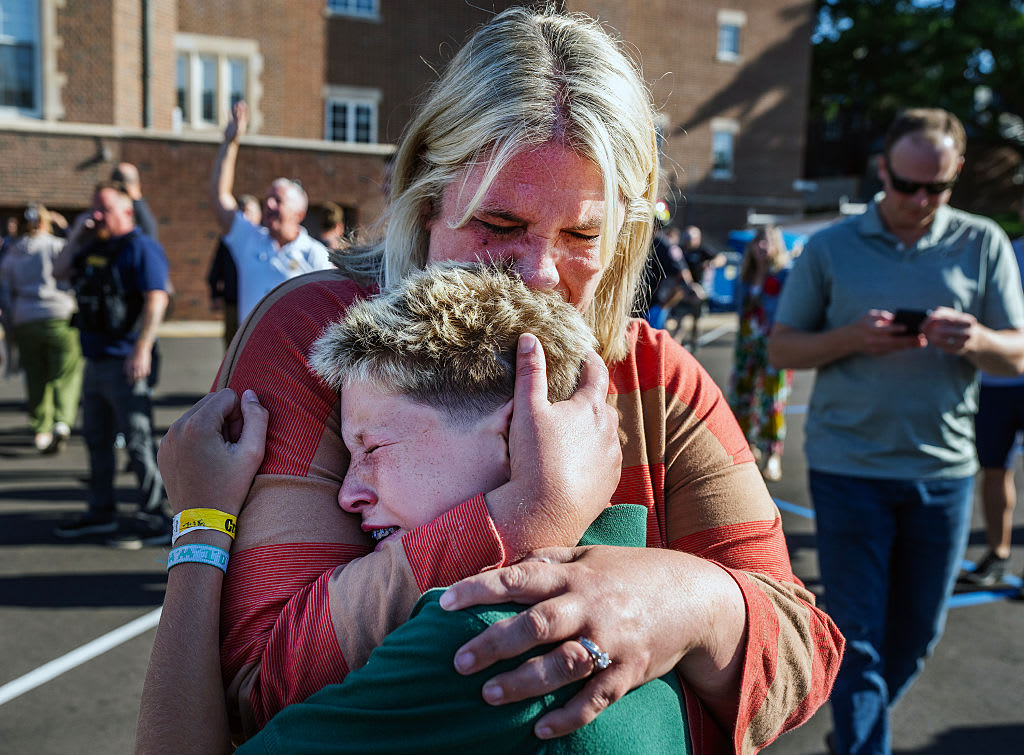Transcript: Arkansas Gov. Asa Hutchinson on "Face the Nation," May 29, 2022
The following is a transcript of an interview with Arkansas Gov. Asa Hutchinson that aired on Sunday, May 29, 2022 on "Face the Nation." The full interview transcript can be found below.
MARGARET BRENNAN: We turn now to Arkansas Governor Asa Hutchinson, who joins us from Little Rock. Good morning to you, Governor.
GOVERNOR ASA HUTCHINSON: Hi, good morning, Margaret.
MARGARET BRENNAN: And we've spoken before about this because after Sandy Hook and the massacre in Connecticut, you ran the NRA Task Force and how to stop school shootings. So you've thought a lot about this. There was an armed officer assigned to the elementary school in Uvalde. And then you had a police force response, where they did not confront the shooter who was carrying an AR-15. In Buffalo, the armed guard who was at that grocery store confronted the shooter, but was killed, in Parkland, Florida, there was an armed officer on site who did not intervene. Doesn't this show that this is an insufficient solution to the problem?
GOV. HUTCHINSON: Well, it certainly shows that you have to have multiple layers of security to protect the children. And there's also the factor of human error. And that's the reason that you've got to have different layers, you can't rely upon just one technique. School Safety is something that we all have to focus on coming out of the incredible tragedy that we see in Uvalde, we have to look at how we can better secure our schools. And it is about the single point of entry that by blocking it open allowed the gunman to come in, it is about the mental health issues where we've got to do better to identify those that are potentially a mass killer. You've got to have our private sector, internet providers to do better in using technology to identify these kinds of dangerous violent communications much quicker. And then of course, we have to be able to train our officers properly. I know we're gonna have to learn a lot more facts as to some of the things that happened in Uvalde. Let's be patient, let's learn from them. But we can't give up on our most precious resource in protecting our children.
MARGARET BRENNAN: I think a lot of people would agree with many of the things you just said, but then they would ask why can't we talk about the weapon. I understand a lot of people may want a long gun to go hunting. But then there's this AR-15 style weapon, semi automatic not that good for hunting. The bullets travel three times the speed of sound, they literally blow bodies apart. That's what was used in Buffalo, it was used in Sandy Hook, it was used in Uvalde. Why not raise the minimum age of purchase to 21 from 18?
GOV. HUTCHINSON: Well, you've seen some states actually do that. Right. And you've seen it in Florida, you've seen it in California and California, the restriction was held as unconstitutional. So there are some constitutional challenges to that. Ultimately, I think the Supreme Court is going to give us guidance on it. But you look at AR-15–,
MARGARET BRENNAN: but you would endorse that?
GOV. HUTCHINSON: –each one has to have– No, I want to give a little bit more history, AR-15s were around for 40 years before they were ever used in any type of mass killing or attack. And so it is about the human heart, it is about identifying the culprits and going after them. And I think it is a discussion you can have. I come down on the point that that's not going to be the solution. And it's going to cause more harm than good. In Arkansas, for example, as you pointed out of the long rifles, we distinguish those and those you can acquire at 18. Because we hunt with those, we it's a culture that we start when we're 14 or 15 here in Arkansas. And so that's important part of it, and it's a step to go to the AR-15s and how you draft laws that would distinguish those, that'll be a part of the discussion, I come down. I don't think that's a solution. And we shouldn't focus on that.
MARGARET BRENNAN: But the gunman in Texas and in New York legally purchased those AR-15s. They didn't set off any kind of concern because they didn't have mental health issues that were on record. They didn't have criminal background checks. Are you saying that it was their legal right and should remain the legal right of anyone like them to go in and buy an AR 15?
Well, an AR-15 is a semi automatic weapon just like you know, you have a semi automatic pistol, it takes a pull of the trigger on each one of those. We ought to outlaw the bump stocks and ways that you can convert that from a semi automatic to an automatic weapon. That is important to distinguish those two. It is an AR-15 style weapon that has been used lately but again for 40 years it wasn't and so why is this happening? I think it's copycats. But are we really going after the heart of the problem? Are we going after what we see is the latest trend? And I think it's more important to protect the schools invest in that. Let's do things–
MARGARET BRENNAN: why-why does it have to be either or?
GOV. HUTCHINSON: –that we can agree upon now and I think that–
MARGARET BRENNAN: why does it have to be either or–
GOV. HUTCHINSON: It doesn't have to be either or–
MARGARET BRENNAN: –because I think people do want to look at all those other things you rattled off, like mental health, like school security, let me ask if it's something specific than the shooter went into that room, that elementary school and Uvalde with 660 rounds of ammunition, and that AR-15 style weapon, that's more than three times what a US soldier carries into combat, should a purchase of ammunition of that size, set off an alarm bell somewhere, should there be some kind of screening or limit on high capacity magazines? Like what legal justification? Should there be for an 18 year old to go in and buy that kind of ammunition?
GOV. HUTCHINSON: It sets off all kinds of alarm bells. Let me emphasize the point. You can do either or you can't have the conversation about both. I think the senators that are coming together in a bipartisan way to talk about what we can agree upon is important. I've communicated with a number of governors. I would like to see a similar bipartisan working group of governors, Democrats and Republicans, seeing what is it we can agree upon? That we can address this and learn from this? So yes, and whenever you're looking at the alarm bells, whenever you're looking at these very odd purchases, somebody just turned 18. Something has to trigger an alarm bell, somebody says let's alert law enforcement to this. This is a concern. I do think we need to look at those type of triggers that can alert law enforcement.
MARGARET BRENNAN: Well, we will look at limits on high capacity magazines and the potential for what you just laid out. Governor, thank you for your time this morning, Face the Nation. I'll be back in a minute so stay with us.





